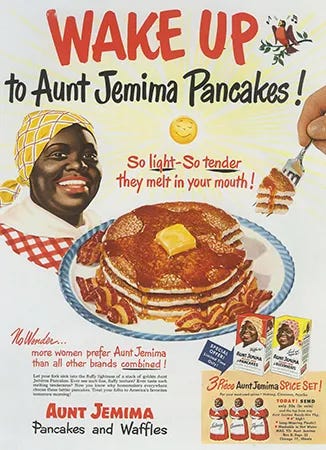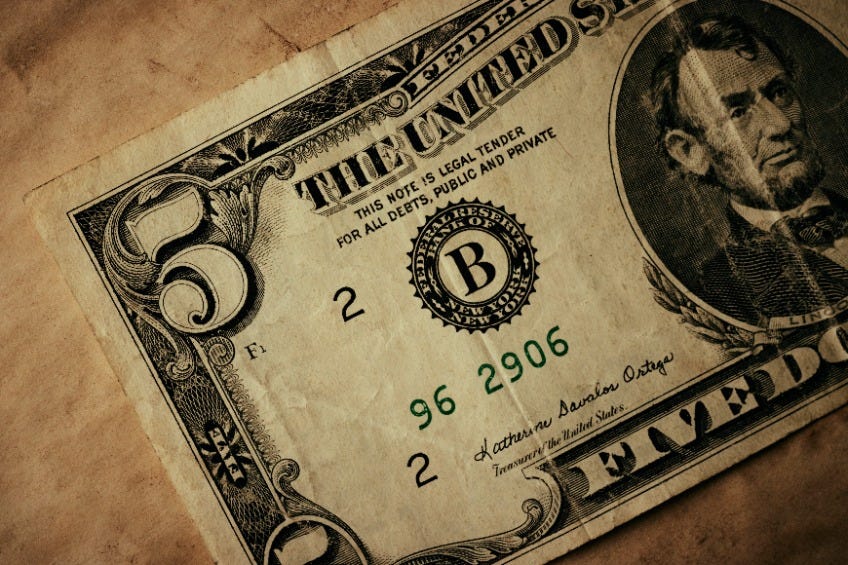Today In Black History
The history and evolution of Uncle Ben and Aunt Jemima
Issue #563 Today In Black History, Thursday, April 11, 2024
Today’s Black History WOW!
Companies have been using racially insensitive logos and characters for their products since before the start of the 20th century, but the practice escalated in the 1940s and beyond.
The Uncle Ben logo and character were created in the 1940s by a Chicago-based food processing company called Converted Rice, and the character of Uncle Ben was first portrayed as a Black man, wearing a bow tie and a bowler hat, and exuding an air of sophistication and elegance. “Uncle Ben” was reportedly inspired by a Black Texan rice farmer named Uncle Ben who was known for his high-quality rice. The image who personified the brand was a beloved Chicago chef and waiter named Frank Brown who posed for his portrait for $500.
From the beginning, incorporating the title “Uncle” in the product name harkened back to the times when Black men were often referred to as “boy” or “uncle” to avoid calling them “Mr.” during the Jim Crow era.
Over the years, the Uncle Ben logo has undergone several changes. In 2007, the original image of Uncle Ben was replaced with a more modern and refined version, aimed at appealing to a younger and more diverse audience when the portrayal of Uncle Ben evolved to look more like a businessman.
However, in the wake of the Black Lives Matter movement and calls for racial justice, the parent company of Uncle Ben's Rice, Mars Inc., announced in 2020 that they would be rebranding the product. The decision to retire the Uncle Ben logo came as part of a broader effort to eliminate racial stereotypes in their marketing. Mars announced it would “evolve” the brand, in light of Black Lives Matter protests following the murder of George Floyd by Minneapolis police officer Derek Chauvin.
Similarly, PepsiCo, the current owner of the Pearl Milling Company that started selling pancake mix in the late 19th century with a “mammy-like” icon of a Black woman in a headscarf named “Aunt Jemima,” finally retired the “Aunt Jemima” brand altogether.
Pearl Milling Company was founded in 1888 by Chris L. Rutt who named the original company after “Old Aunt Jemima,” an 1875 song from a minstrel show that featured performers in blackface who wore aprons and bandana headbands.
Over the years, the Aunt Jemima character evolved until she looked much more modern, but the moniker “Aunt Jemima” just had too much of a racial stigma attached to it. All of the Aunt Jemima products are now known as Pearl Milling with no character on the packaging.
Over the years, companies have abandoned their racist icons and characters, including the “Frito Bandito” and the Taco Bell Chihuahua.
All of the former “Uncle Ben’s” rice products are now known as “Ben’s Original” with no image on the packaging.
Today In Black History
- In 1881, Spelman College, sponsored by the John D. Rockefeller family, opened as the Atlanta Baptist Female Seminary for the education of Black women.
- In 1955, Roy Wilkins was elected as the NAACP Executive Secretary after the death of Walter White.
- In 1956, acclaimed singer Nat King Cole was attacked by a mob of white supremacists as he was performing on stage in Birmingham, Alabama.
- In 1966, Emmett Ashford became the first Black Major League Baseball Umpire.
- In 1967, Adam Clayton Powell, Jr. was re-elected to Congress representing his Harlem district, defying his ouster by Congress.
- In 1972, Rev. Benjamin Lawson Hooks was named as the first Black person to head the Federal Communications Commission.
- In 1990, Idaho became the 47th state to recognize January 15 as Martin Luther King, Jr. Day.
- In 1997, the Museum of African American History (now known as the Wright Museum of African American History after its founder, Dr. Charles H. Wright) opened in Detroit. It was the largest museum of its kind until the Smithsonian National Museum of African American History and Culture opened in Washington, D.C. in 2016.
- The “Comments” feature has been disabled. Instead, let’s discuss these facts in our community on Substack Notes. You can also read other Substack publications without subscribing to them when you join Notes.
This post is free to read/listen to for three days after publication. To have 365 24/7 access to all our posts and podcast episodes and financially support “We Are Speaking” for no more than $5 per month, please subscribe at the paid level. You will receive a 7-day FREE trial!









